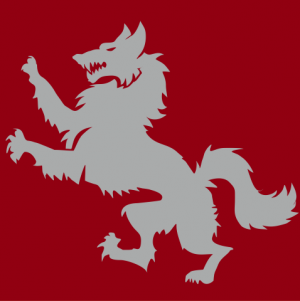Arcadia
Contents
History
The history of Arcadia is long and colorful, including incidents of gods cursing men. It is said that the history of Arcadia begins many aeons ago, when Arcas, a son of Zeus and the nymph Callisto, had to flee there to avoid Hera's wrath. The land was named Arcadia in Arcas's honor.
King Lykaon
Perhaps the best-known moment of Arcadia's history focuses upon King Lykaon (or Lycaon, as it is now more often spelled in Common Imperial). Lykaon killed Arcas and presented his flesh in a feast to Zeus, in order to test if Zeus was truly the god he claimed to be. Realizing what Lykaon had done, Zeus cursed him to become a wolf. Lykaon would remain in this form for seven years - unless he ate human flesh, in which case he would remain a wolf forever. Lykaon's fate was long lost to legend, and some argue concerning the nature of his curse. However, the current ruling family, Lycaos, claims that they are ultimately descended from Lykaon's long family line, implying he may have returned to his human form at some point.
Other Werewolf Legends
Although the story of King Lykaon is certainly the most famous, other tales of transformation, wolves, and even lycanthropy abound throughout Arcadia. Rumor has it that the Arcadians developed an ancient ritual in observation of Lykaon's punishment: certain Arcadian families had to draw lots, and some family members then underwent a ritual to become a wolf for seven years, serving the same sentence as did King Lykaon himself. This was attested by one famous Arcadian who later won the Olympic games, but Arcadians today deny any of these rituals still occur. Other werewolf magic hearsay has also spread, such as Arcadian family lines tainted by lycanthropic blood, or Arcadians intentionally cursing themselves to be werewolves, but most Arcadians - namely the ones targeted by such rumors - deny them vehemently. They can, however, do nothing to end these stories that have already taken root throughout the Empire, further tainting Arcadia's reputation.
Lykaonian Zeus
Among the various other wolf and werewolf associations in Arcadia, it is said that the Arcadians long ago - and still continue to do so today, according to some superstitions - worshiped Zeus as a figure associated with wolves. Some say they even upheld him as a god of lycanthropy, going so far as to portray him as a great, grey werewolf and making human sacrifices to him, often involving strange rituals, cannibalism, and acts of lycanthropy. Some Arcadians argue that this is a misunderstanding, and that the depiction of Lykaonian Zeus shows him only as a god who will curse the amoral to become wolves, but these arguments are shaky at best.
Reputation
As one may imagine, given their close association with werewolves, Arcadia's reputation is a mixed one. While there are those who uphold the landscape as a kind of pastoral paradise, they are mostly poets, artists, and scholars, particularly those well-versed in the land's history and the knowledge that it was the birthplace of Hermes and the home of Pan. The common peasant who has heard of Arcadia - and, indeed, plenty of the nobles as well - often associate it either with grim superstition or regard it as an archaic place full of outdated beliefs and foolish rituals. The tendency to lean more toward one image or the other depends largely upon how strongly the individual in question believes in magic and transformation.
Geography
Arcadia's landscape varies from hills to fields: although much of Arcadia consists of highlands, hills, and mountains, it also has several vast, beautiful plains and equally as appealing valleys, through which run several rivers often considered integral to many of the wars that happened across Old Achaea. Perhaps the most famous of Arcadia's many mountains are the dual peaks of Mount Lykaion, which is rife with its own strange history and rituals - namely the Lykaia - pertaining to werewolf legends and Lykaonian Zeus.
Economy
As a rural landscape, Arcadia mainly sustains itself economically on grains and meats. However, it is also very well known for sheep and wool; somewhat ironically, considering its association with wolves. Indeed, many say the greatest shepherds in the land are the Arcadians, though the region is certainly also known for its crops and various other meats, such as goats and cattle, as well as fine Arcadian horses. Arcadia even makes quite a bit of coin simply by providing a rural landscape in which foreign nobles can still hunt, as other regions of the Imperial Heartland do not have nearly the same untainted wilderness. The act of a foreigner hunting in Arcadia, however, is often frowned upon by the locals, even if the mere presence of a wealthy foreigner and their entourage provides them with a healthy new flow of currency.
Religion
The religions of Arcadia are very Old Achaean in nature, with old-style temples and frequent sacrifice rituals. Zeus is still considered the patron god of the landscape, particularly given the region's history. However, many individuals also uphold Demeter and Artemis, among a few other gods.
Important Figures
Although Arcadians don't often leave their homeland, some have ventured out and made names for themselves - or at least gotten involved in important matters, whether they intended to do so or not, such as Zacynthos. Also, as mentioned, Arcadia is said to have been home to the gods Hermes and Pan. The region is currently ruled by the house of Lycaos.
